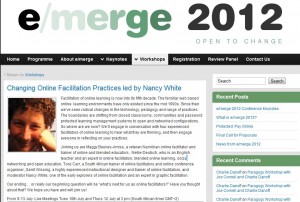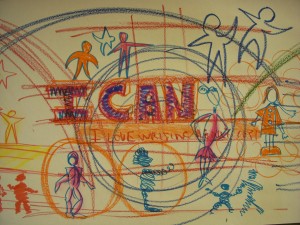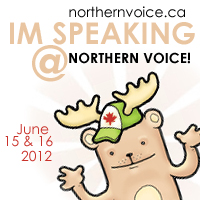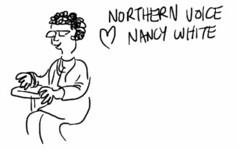Earlier this year some of my online friends (Val Cortes, Lisa Endersby and Ian Simmie) invited me to be part of a panel they were preparing for Canadian Association of Colleges and Universities Student Services Conference: Engaging Digital Citizens <http://www.cacuss2012.ca> in Vancouver BC, Canada. The topic was on communities and learning, building off of some lessons learned from the project the three of them had been doign.
Abstract
What does it mean to be a member of a community in the digital age? In this session you will begin to explore how student affairs professionals can use available technologies to create vibrant and engaging online communities. Through discussing the SASA Leadership Educators Resource Network (LEARN) online community as a case study and the lessons from the LEARN membership survey, we will explore the creation and facilitation of this and other distributed work, learning, and community groups.Summary
Developing and maintaining a vibrant and meaningful online community requires purposeful care and nurturing. Many of the tools that student affairs professionals use in their daily practice can be applied to the digital world. In this session, we will review the theory of online community facilitation and we will provide specific group facilitation tools, strategic-planning models and engagement strategies that participants can implement in their own contexts. Finally, we will share the lessons that we have learned as LEARN facilitators and creators. The session will feature a remote presentation with a colleague in Victoria and, potentially, with a Seattle-based consultant and international online group facilitator of distributed work, learning and community groups.
To warm things up, Lisa Endersby wrote this blog post. My job was to add something about this ecosystem of group forms that address the diversity of small groups, individuals, bounded communities and networks. I’m particularly interested in the interplay between communities and the broader networks they live in and “by.”
This was all well and good, except due to my not paying close attention to dates, I was not available to do something live online with them as I was going to be, ironically, driving to Vancouver for Northern Voice and the Online Community Enthusiasts gathering. So we decided that I’d record a short piece for them to weave into their presentation. This makes life easy for me in terms of preparation, but dang, I sure missed the interaction!
Then the F2F team was going to ask the participants some questions. I’m reposting them here because they continue to be useful questions. Every time I engage in a conversation about communities, communities of practice, networks, groups — whatever form — we run into a lack of clarity of what we are talking about.
- What is your definition of community?
- How do you know when/if you are a part of a community? How do you know when/if you aren’t part of one?
- Can you join an online community (‘obtain a membership’)? What does this look like?
- What is your first reason/goal for entering an online community?
- Are there any risks to being part of an online community?
- What are the benefits of online communities? Which one(s) resonate(s) most with you?
As I prep for some presentations and workshops at KMSingapore next week, these questions remain alive, along with the question “how do we useful work with profusion of networks, groups and communities we MIGHT belong to?” What are the strategic choices and practices? Stay tuned for more…


 We’ll start the evening of July18th by warming up our drawing muscles and silencing those pesky inner censors. The second day, we’ll build into the basic practices of graphic facilitation and recording. We will pay attention to preparation, the actual visual work, and follow up including digital capture of paper based images. Our third day will be devoted to participatory graphic approaches, practicing and giving peer feedback. You can expect to go away with icons, ideas and approaches which you can use immediately, as well as ideas about how to hone your practice.
We’ll start the evening of July18th by warming up our drawing muscles and silencing those pesky inner censors. The second day, we’ll build into the basic practices of graphic facilitation and recording. We will pay attention to preparation, the actual visual work, and follow up including digital capture of paper based images. Our third day will be devoted to participatory graphic approaches, practicing and giving peer feedback. You can expect to go away with icons, ideas and approaches which you can use immediately, as well as ideas about how to hone your practice.
